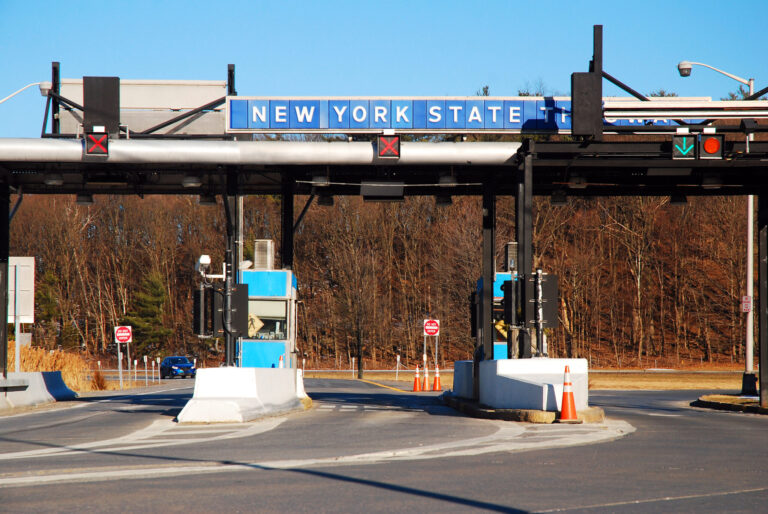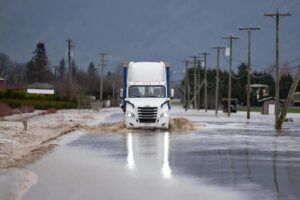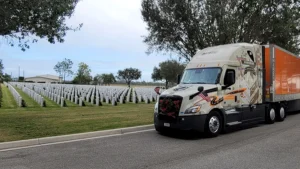We seem to be in a season when the word “toll” is appearing in the news and used in discussions. Daily reports inform us of the toll the coronavirus (COVID-19) is taking on the world and the U.S. We see statistics showing the toll of the virus in terms of the number of people testing positive for COVID-19 and, of even greater concern, the increasing toll in terms of mortality rates of identified victims.
Aside from the statistics involved with COVID-19, actions taken by government officials, as necessary as they might be, are taking a huge toll on the American lifestyle. COVID-19 continues to take its toll on everything from the economy to sports events, conventions, restaurants and other aspects of life. We all hope these tolls decrease — the sooner the better, in fact. But the tolls many state highway officials hope do not decrease are those collected along the nation’s tollways and turnpikes. No doubt as fewer Americans travel, toll collections will likely decrease, but many states are taking measures to ensure highway toll revenue continues to flow. And they are implementing measures to continuing collecting tolls while ensuring limited exposure of motorists to contact with COVID-19.
While many states still employ human toll collectors on some highways and bridges, they also utilize automated tolling at other locations. In the midst of a pandemic, even highway officials recognize that an exchange of credit cards or cash between a toll-booth worker and the hundreds or thousands of drivers passing through a single toll lane each day turns vehicles into traveling petri dishes. Few items people carry are covered with more germs than cash in the forms of bills and coins. Likewise, with credit and debit cards normally carried in the same wallet or pocket as cash, touching these items also exposes both toll collectors and drivers to germs. So, in line with directives to decrease the risk of exposure to COVID-19 among humans and to practice “social distancing,” many states are removing “cash only” lanes from toll gantries. Instead, all vehicles are passing through automated checkpoints normally reserved for vehicles equipped with “E-ZPass” or paying through similar cashless systems.
Maryland officials have directed motorists to “keep moving” through toll plazas and are asking people who would otherwise pay with cash to move through the cash-only lanes. They will later receive a bill in the mail; the total will be based on the cash rate normally charged at a toll gantry.
The Pennsylvania Turnpike Commission also announced changes in toll collection, indicating that the state will also no longer accept cash and will assess tolls electronically, either through E-ZPass or through the toll-by-plate program. “This is a temporary safety measure to keep travelers moving with no need to stop at tollbooths or interact with tolling personnel during the COVID-19 pandemic,” the commission said in a news release.
In the South, states with tolling systems in place have taken similar measures. The Central Florida Expressway has offered the following information to motorists: Keep moving and do not stop at toll booths; drivers will be charged the same cash rate; a pay-by-plate billing statement will be mailed to each vehicle’s registered owner; and no additional fees or administrative charges normally associated with pay-by-plate billing.
Similar measures have been adopted in Illinois and some Oregon tolling locations. Yet, the concerns about the spread of COVID-19 have not resulted in all states following suit.
In New York, a state operating one of the most extensive highway-tolling programs in the nation, collection procedures to date have not changed. While New York is taking some of the most drastic steps of any state in reaction to COVID-19, the sense of urgency doesn’t appear to have been adopted by the New York Thruway Authority. A spokesman for the Authority said:
“The health and safety of our employees remains our top priority. We already had a number of safety measures in place to protect our toll collection workforce and those measures have been enhanced during this public health crisis. We will continue to closely monitor the situation.
“The Thruway is a critical super highway which allows for the transportation of goods throughout the state and the entire northeast corridor. It will remain open during this time.”
No doubt the number of states changing toll-collection procedures will increase in the coming days. As trucks approach a gantry, it is advised that extra caution be taken to read signage directing drivers to the appropriate lanes.
The Trucker News Staff produces engaging content for not only TheTrucker.com, but also The Trucker Newspaper, which has been serving the trucking industry for more than 30 years. With a focus on drivers, the Trucker News Staff aims to provide relevant, objective content pertaining to the trucking segment of the transportation industry. The Trucker News Staff is based in Little Rock, Arkansas.















